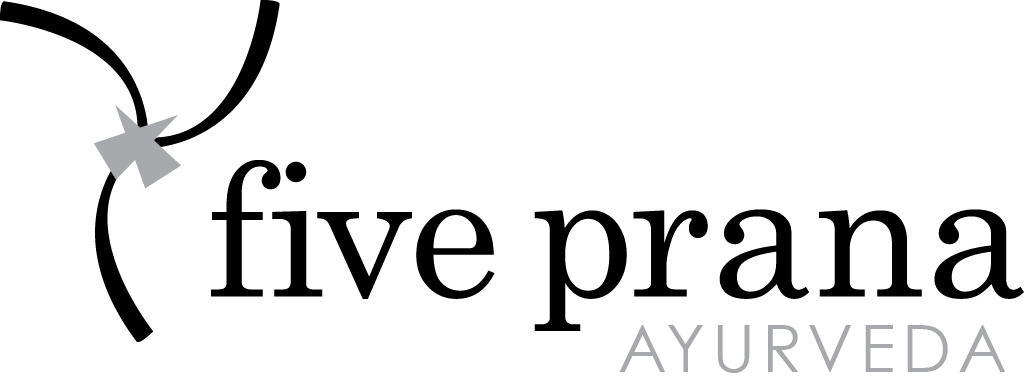Ayurvedic Herbs List
/Ayurvedic Herbs List
In an Ayurveda, we call the spice cabinet our pharmacy. Many of the spices we utilize in Ayurvedic cooking have been studied for their benefits on health and wellbeing. Even the Western medical world is beginning to understand the correlation between our digestive health and our overall health. The gut-brain connection is the cornerstone of the Ayurvedic view of health. In fact in Ayurveda, disease begins to manifest in the body when our digestive health is imbalanced. However, there are herbs that are used medicinally in Ayurveda as part of a herbal protocol recommended by an Ayurvedic professional. Thusly, all the Ayurvedic herbs listed below should not be self-administered and Ayurvedic herbs should only be taken under-advisement of your Ayurvedic Counselor/Practitioner/Doctor and approved by your Primary Care Physician. This list of Ayurvedic herbs is only meant to educate you on the various herbs traditionally used in Ayurveda.
“According to the Vedic view, the sap of herbs contains a powerful life essence called soma. The soma from plants can combine with ojas, which is the soma or life-essence of the body, and boost it to a higher level of activity. The healing essence of plants reacts with the plasma (rasa [dhatu]) in the body, creating a superior form of plasma to nurture and rejuvenate other tissues. It creates an exhilarating effect that promotes healing and transformative processes on all levels.”
Aloe Vera
Sanksrit Name: Kumari
Taste (Rasa): bitter, astringent, pungent, sweet
Energetics (Virya): cooling
Post-Digestive Effect (Vipaka): sweet
Quality (Guna): heavy, unctuous, slimy
Dosha: VPK=
Tissues (Dhatu): all plasma (rasa), blood (rakta), muscle (mamsa), fat/adipose tissue (meda), bone (asthi), nerve/bone marrow (majja), reproductive tissue (shukra [male]/artava [female])
Systems (Srotamsi): circulatory (rakta vaha srotas), digestive (anna vaha srotas), female reproductive (artava vaha srotas), excretory (purisha vaha srotas)
Indications: gynecology, skin, digestion, eyes
Precautions: pregnancy, uterine bleeding
Amalaki
Taste (Rasa): bitter, astringent, pungent, sweet, predominantly sour
Energetics (Virya): cooling
Post-Digestive Effect (Vipaka): sweet
Quality (Guna): light, dry
Dosha: VP- K+ (in excess)
Tissues (Dhatu): all plasma (rasa), blood (rakta), muscle (mamsa), fat/adipose tissue (meda), bone (asthi), nerve/bone marrow (majja), reproductive tissue (shukra [male]/artava [female])
Systems (Srotamsi): circulatory (rakta vaha srotas), digestive (anna vaha srotas), excretory (purisha vaha srotas)
Indications: digestion, heart, metabolic disorders
Precautions: acute diarrhea, dysentery, high Kapha and Ama
Arjuna
Taste (Rasa): bitter, astringent
Energetics (Virya): cooling
Post-Digestive Effect (Vipaka): pungent
Quality (Guna): light, dry
Dosha: PK- V+
Tissues (Dhatu): plasma (rasa), blood (rakta), muscle (mamsa), bone (asthi), nerve (majja), reproductive tissue (shukra [male]/artava [female])
Systems (Srotamsi): circulatory (rakta vaha srotas), digestive (anna vaha srotas), nervous (majja vaha srotas), reproductive (shukra/artava vaha srotas)
Indications: heart, lungs, liver, skin, tissue, reproductive tissues
Precautions: pregnancy, uterine bleeding, constipation
Ashwagandha
Taste (Rasa): bitter, astringent, sweet
Energetics (Virya): heating
Post-Digestive Effect (Vipaka): sweet
Quality (Guna): light, unctuous
Dosha: VK-
Tissues (Dhatu): blood (rakta), muscle (mamsa), fat/adipose tissue (meda), bone (asthi), nerve/bone marrow (majja), reproductive tissue (shukra [male]/artava [female])
Systems (Srotamsi): respiratory (prana vaha srotas), nervous (majja vaha srotas), reproductive (shukra/artava vaha srotas)
Indications: tissues, immunity, lungs, nerves, reproductive, gynecology, thyroid
Precautions: high Ama, severe congestion, excess Pitta, although traditionally used in India during pregnancy to strengthen the uterus and health of the mother, its spasmolytic activity on the uterus has led to many to restrict its use in pregnancy, ashwagandha has some hypoglycemic activity and it is advisable to monitor blood glucose in people susceptible
Brahmi
Taste (Rasa): bitter, sweet
Energetics (Virya): cooling
Post-Digestive Effect (Vipaka): sweet
Quality (Guna): light, flowing
Dosha: VPK=, V+ in excess
Tissues (Dhatu): mainly plasma (rasa), mainly blood (rakta), muscle (mamsa), fat/adipose tissue (meda), bone (asthi), mainly nerve/bone marrow (majja), reproductive tissue (shukra [male]/artava [female])
Systems (Srotamsi): circulatory (rakta vaha srotas), digestive (anna vaha srotas), nervous (majja vaha srotas), excretory (purisha vaha srotas), muscular (mamsa vaha srotas)
Indications: brain, nerves, urinary, external, mind, skin
Precautions: may aggravate itching; in large doses may cause headaches or temporary loss of consciousness, caution during pregnancy; caution is advised with anti-epileptic and antidepressant medication
Gokshura
Taste (Rasa): sweet, bitter
Energetics (Virya): cooling
Post-Digestive Effect (Vipaka): sweet
Quality (Guna): heavy, unctuous
Dosha: VPK=, primarily V-
Tissues (Dhatu): plasma (rasa), blood (rakta), bone (asthi), nerve/bone marrow (majja), reproductive tissue (shukra [male]/artava [female])
Systems (Srotamsi): respiratory (prana vaha srotas), urinary (mutra vaha srotas), reproductive (shukra/artava vaha srotas), nervous (majja vaha srotas)
Indications: urinary, reproductive, nerves, skin
Precautions: dehydration, dryness, caution during pregnancy, caution with antipsychotic drugs especially MAO inhibitor medications as its harmala alkaloid content may speed up the breaking down of the medication in the digestive system, thus reducing the effectiveness of the drug
Guduchi
Taste (Rasa): bitter, astringent, pungent
Energetics (Virya): heating
Post-Digestive Effect (Vipaka): sweet
Quality (Guna): light, unctuous
Dosha: VPK=, primarily VP-
Tissues (Dhatu): plasma (rasa), blood (rakta), muscle (mamsa), fat/adipose (meda), nerve/bone marrow (majja), reproductive tissue (shukra [male]/artava [female])
Systems (Srotamsi): circulatory (rakta vaha srotas), digestive (anna vaha srotas)
Indications: liver, immunity, skin, digestion, metabolic, reproductive
Precautions: caution during pregnancy
Guggulu
Taste (Rasa): bitter, astringent, pungent, sweet
Energetics (Virya): heating
Post-Digestive Effect (Vipaka): pungent
Quality (Guna): light, penetrating
Dosha: VK- P+ (in excess)
Tissues (Dhatu): all plasma (rasa), blood (rakta), muscle (mamsa), fat/adipose tissue (meda), bone (asthi), nerve/bone marrow (majja), reproductive tissue (shukra [male]/artava [female])
Systems (Srotamsi): circulatory (rakta vaha srotas), digestive (anna vaha srotas), respiratory (prana vaha srotas), nervous (majja vaha srotas)
Indications: cholesterol, arthritis, heart, gynecology, infections, bones, cancer
Precautions: acute kidney infections, acute stage of rashes, excessive uterine bleeding, thyrotoxicosis, pregnancy and breast-feeding, reported to reduce the effect of antihypertensives such as propranolol and diltiazem and so medication should be adjusted accordingly, caution with hypoglycemic medication
Haritaki
Taste (Rasa): pungent, sweet, sour, predominantly astringent & bitter
Energetics (Virya): heating
Post-Digestive Effect (Vipaka): sweet
Quality (Guna): light, dry
Dosha: VPK=
Tissues (Dhatu): all plasma (rasa), blood (rakta), muscle (mamsa), fat/adipose tissue (meda), bone (asthi), nerve/bone marrow (majja), reproductive tissue (shukra [male]/artava [female])
Systems (Srotamsi): respiratory (prana vaha srotas), digestive (anna vaha srotas), nervous (majja vaha srotas), excretory (purisha vaha srotas)
Indications: digestion, cholesterol, lungs, eyes, mucous membranes
Precautions: pregnancy, dehydration, severe exhaustion or emaciation; in excess or high Pitta
Manjistha
Taste (Rasa): bitter, sweet, astringent
Energetics (Virya): cooling
Post-Digestive Effect (Vipaka): pungent
Quality (Guna): heavy, dry
Dosha: PK- V+
Tissues (Dhatu): plasma (rasa), blood (rakta), muscle (mamsa), bone (asthi)
Systems (Srotamsi): circulatory (rakta vaha srotas), female reproductive (artava vaha srotas), excretory (purisha vaha srotas), bone (asthi vaha srotas)
Indications: skin, bleeding, gynecology, tumors/accumulations
Precautions: severe chills, high Vata
Neem
Taste (Rasa): bitter
Energetics (Virya): cooling
Post-Digestive Effect (Vipaka): pungent
Quality (Guna): light, dry
Dosha: PK- V+
Tissues (Dhatu): plasma (rasa), blood (rakta), fat/adipose tissue (meda), bone (asthi), reproductive tissue (shukra [male]/artava [female])
Systems (Srotamsi): circulatory (rakta vaha srotas), digestive (anna vaha srotas), respiratory (prana vaha srotas), urinary (mutra vaha srotas), reproductive (shukra/artava vaha srotas)
Indications: skin, digestion, lungs, metabolic, mouth, fevers, reproduction
Precautions: diseases of cold and tissue deficiency generally, high Vata, considered bad for the heart and unpleasant for the mind
Punarnava
Taste (Rasa): bitter
Energetics (Virya): cooling
Post-Digestive Effect (Vipaka): pungent
Quality (Guna): light, dry
Dosha: VPK- , V+ (in excess)
Tissues (Dhatu): plasma (rasa), blood (rakta), fat/adipose tissue (meda), nerve/bone marrow (majja), reproductive tissue (shukra [male]/artava [female])
Systems (Srotamsi): digestive (anna vaha srotas), urinary (mutra vaha srotas), plasma (rasa vaha srotas)
Indications: heart, kidneys, digestion, diabetes, arthritis, gynecology
Precautions: diarrhea, caution with sedative, antidepressive and antiepileptic medication, there is potential for positive potentiation of ACE inhibitors
Shankhapushpi
Taste (Rasa): bitter, astringent, pungent
Energetics (Virya): cooling
Post-Digestive Effect (Vipaka): sweet
Quality (Guna): light, unctuous
Dosha: VPK-
Tissues (Dhatu): plasma (rasa), nerve/bone marrow (majja), reproductive tissue (shukra [male]/artava [female])
Systems (Srotamsi): excretory (purisha vaha srotas), reproductive (shukra/artava vaha srotas), menstrual (rajah vaha srotas), nervous (majja vaha srotas)
Indications: nerves, digestion, bleeding, reproduction, skin
Precautions: caution with all sedative medication due to potential positive interactions
Shatavari
Taste (Rasa): sweet, bitter
Energetics (Virya): cooling
Post-Digestive Effect (Vipaka): sweet
Quality (Guna): unctuous, heavy
Dosha: VP- K+
Tissues (Dhatu): all plasma (rasa), blood (rakta), muscle (mamsa), fat/adipose tissue (meda), bone (asthi), nerve/bone marrow (majja), reproductive tissue (shukra [male]/artava [female])
Systems (Srotamsi): circulatory (rakta vaha srotas), digestive (anna vaha srotas), reproductive (shukra/artava vaha srotas), respiratory (prana vaha srotas)
Indications: gynecology, lactation, digestion, lungs, male fertility, urine, anabolic, nerves
Precautions: high Ama, excess mucus, acute lung congestion, high Kapha, low digestive fire
Shilajit
Taste (Rasa): pungent, bitter, salty, astringent
Energetics (Virya): heating
Post-Digestive Effect (Vipaka): pungent
Quality (Guna): dry, heavy
Dosha: VPK=, P+ (in excess)
Tissues (Dhatu): all plasma (rasa), blood (rakta), muscle (mamsa), fat/adipose tissue (meda), bone (asthi), nerve/bone marrow (majja), reproductive tissue (shukra [male]/artava [female])
Systems (Srotamsi): urinary (mutra vaha srotas), reproductive (shukra/artava vaha srotas), nervous (majja vaha srotas)
Indications: urinary, diabetes, reproduction, blood, bones
Precautions: do not mix with high uric acid levels or heavy and hot foods
Triphala
Taste (Rasa): sweet, sour, pungent, bitter, astringent
Energetics (Virya): cooling
Post-Digestive Effect (Vipaka): sweet
Quality (Guna): light, dry
Dosha: VPK=
Tissues (Dhatu): all plasma (rasa), blood (rakta), muscle (mamsa), fat/adipose tissue (meda), bone (asthi), nerve/bone marrow (majja), reproductive tissue (shukra [male]/artava [female])
Systems (Srotamsi): all channels especially the channels of elimination (purisha vaha srotas)
Indications: digestion, lungs, skin, eyes, weight
Precautions: caution during pregnancy
Tulsi (Holy Basil)
Taste (Rasa): pungent, bitter
Energetics (Virya): heating
Post-Digestive Effect (Vipaka): pungent
Quality (Guna): light, dry
Dosha: VK- P+
Tissues (Dhatu): plasma (rasa), blood (rakta), nerve/bone marrow (majja), reproductive tissue (shukra [male]/artava [female])
Systems (Srotamsi): circulatory (rakta vaha srotas), digestive (anna vaha srotas), respiratory (prana vaha srotas), nervous (majja vaha srotas), urinary (mutra vaha srotas)
Indications: lungs, digestion, nerves, heart
Precautions: respiratory infections, high Pitta without other cooling herbs, theoretical evidence that its eugenol content may deplete glutathione from the liver, caution should be used in people using glutathione-depleting medication such as paracetamol
“Plants who are Queens of the Soma, manifold, with a hundredfold perceptive power. I take you as the best for the fulfillment of the heart’s desire. Plants who are Queens of the Soma, spread over all the Earth, generated by the Divine Father, may you impart vigor to this herb”



